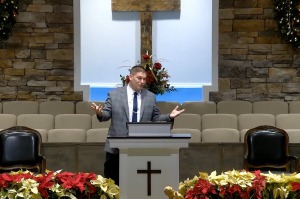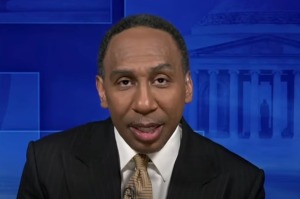Ex-Mormon Speaks Out on Mormons Gaining Visibility, Mitt Romney
Mormonism has evidently left the margins of American society and gained visibility and power in the media over the last few months politically (and musically). But what does it all mean to the American Christian culture? Will evangelicals soften up to Mormons? An ex-Mormon thinks so.
Author of The Mormon Mirage: A Former Member Looks at the Mormon Church Today, Latayne C. Scott recently spoke with The Christian Post about Mitt Romney, "The Book of Mormon" musical and the importance of educating Christians on Mormon beliefs.
It’s not about polygamy anymore with television shows “Big Love” and “Sister Wives.” Romney and "The Book of Mormon" are the new face of the religion.
CP: Mormonism has been gaining visibility. What is your view on the media attention? Should American Christians worry?
Scott: There are several factors that have come out just in the last few years that were never factors before. One of them is that there are two GOP contenders in the presidential nomination. One of them is Mitt Romney which people are familiar that he is pretty much a straight arrow Mormon; he's very conservative, he identifies himself with his Mormon faith, he's even willing to do it in a national televised interview or I guess it was more like a debate even.
The other one is Jon Huntsman. He's not as well-known to the American public but he's a very very wealthy man who is Mormon and is very active in Utah politics. He has just announced his bid for the presidency but he's a different kind of Mormon – his faith, his religion background as a Mormon. From what I understand, he sends his children to Catholic school. He talks much more ecumenically about other religions such as Buddhism and eastern religions and he would never identify himself as Mitt Romney does.
Those are two factors. The other is what's going on with television and even in stage shows. “The Book of Mormon” is a musical that was, I believe, written by the guys who wrote South Park. It's been getting all kinds of media attention because it deals with Mormonism very tongue and cheek but also not completely disrespectfully.
But then you have “Big Love,” “Sister Wives” and other factors that are going on television that draw the attention of people to some of the branches and practices of Mormonism. Of course, the practice of polygamy on earth is not a feature of today's standard Mormonism, the kind that comes out of the headquarters of Salt Lake City. But most people do identify with that.
All those things together, the visibility of Mormons in power, the greater cultural visibility that are identified with Mormonism, I think it softens up people to some of the other concepts and makes Christians, I think, a little more vulnerable to buying into some things and realizing when it's probably too late to get into their minds that what they have bought into is more than what they thought they were getting.
CP: Will it attract more Christians to the religion?
Scott: I think because it's not emphasizing the things that it used to when I was a Mormon, [it] is concentrating more on family lifestyle, stability and that sort of things and all that is very attractive to Christians. But what I tell Christians is that everything that is truly good about Mormonism is Christian. Clean living is Christian; we don't need those other things that are in Mormonism.
CP: What are the things that they emphasized before when you were growing up?
Scott: Well, I was what is called a chapel Mormon. In my book, I talk about the difference between chapel Mormons and internet Mormons.
Chapel Mormons are people who believe that what the church says is true, and what their leaders tell to any of the individuals, they must act on and that the history and the doctrine of the church are about reproach. But with the arrival of the internet, a different group of Mormons have risen who find out things about church history that I was never allowed to read when I was a Mormon. Because of that you have a group of people, many of whom are well educated and are very pragmatic about their religion.
The reason I left Mormonism is that I found out in books some of the things that people are discovering on the internet and it was a great shock to the system.
CP: Can you tell us about your journey out of Mormonism?
Scott: Yes, I have been a faithful Mormon during my teenage years and won a scholarship to BYU (Brigham Young University) because of my writing and went there for three years. I was a completely happy Mormon. I did baptism for the dead and Mormon temples. I had a temple recommend, which to a Mormon means that I had gone through multiple interviews that showed me to be a faithful Mormon. I was writing for the publication of the university. I was just so happy.
When I came back to my hometown in New Mexico in 1973 for summer vacation, I was confronted with some books that told a very different archeology history of the Mormon church than I had been presented both in my local congregation and my university.
When I was confronted with these things I faced the same kind of feelings that I showed in a novel called Latter-Day Cipher, and it shows how someone who can really love Mormonism, live it faithful and find himself or herself confronted with these things.
It takes an emotional toll for someone who believed it and loved it.
CP: What are some of the main things that you disagree with or that you think are false?
Scott: I think most people who would call themselves Christians, the readership of The Christian Post, would agree with certain aspects of God. … I'll choose something that Mormons would disagree with. And this is mainstream Mormonism, the group out in Salt Lake City. There are so many splinter groups, I'm not going to try and cover them.
In the Mormonism of Mitt Romney, for instance, God the father was once a man and he lived on another planet. He went through birth, life and death on another planet and he was given the ability to create this world like his god [did].
So the first difference is that he had a god above him. We are talking about multiple gods.
The second difference that Christians would have with Mormonism is the definition of the word salvation. Mormons would say, when they use the word salvation, that means the ability to have your body resurrected. It really doesn't have to do with where you are going to spend eternity. To a Mormon, what is important is not salvation because they believe that that's the gift that's given to every person who lives on this earth, that they will have their bodies resurrected. But the thing that is important to them is exaltation and all Mormons work very very hard because this is not a free gift, salvation is.
Then exaltation is which kingdom of heaven you end up in and ultimately whether or not a Mormon can become a god or goddess. And I believed with all my heart when I was a Mormon that I was going to become a goddess and that my husband and I would create worlds like this one.
CP: Is Mitt Romney reaching that level?
Scott: He has been through the Mormon temple, and when you go through a Mormon temple you receive your endowments and [are] married in the temple as he was. He would've made an oath of allegiance to the Mormon church, in the Mormon temple. This is a secret ceremony that he can't talk about, something that Mormons who have been through the ceremony are warned not to talk about but part of that ceremony is an allegiance to the Mormon church.
The concern that many people have about someone who is a faithful Mormon becoming a high level leader, especially a powerful leader like the president of the United States, is if the Mormon church and the government of the United States had a disagreement, where would his loyalties lie?
That's not to say he's not a good man. I believe that he is a very good man. I believe that he's a man of integrity, in terms of his political feelings. But there is a difference between someone who has great integrity and someone who has divided loyalties in terms of authority.
CP: How will America react if he was elected president?
Scott: I think that of course liberals and others will think it is a horrible thing. He's very very conservative. I believe that many conservatives, Americans, including Christians, will welcome him.
I think people want to know about Mormonism, especially if it has to do with today's culture because they want the tools to be able to say "this is right or this is wrong" and most Christians today don't have the tools to say whether or not, for instance, if they can regard a Mormon as a brother or a sister. That's the bottom line issue. In the Mormon Mirage, I give enough of those tools, in other words ways to look at specific points of their doctrine, like their view of God, their view of salvation, their view of church, what is the church, can you be a member of another church according to the Mormon and be acceptable to God?
Because of my hard thought battle to leave Mormonism, those are the things that I feel very good about sharing with Christians because I want them to know. People know that their neighbors are good people, they know that their Mormon friends are good people. They need the tools to know how to assess whether these people believe the same things that they do.
For example, if you ask a Mormon if they believe in God they will say certainly. But what they have in mind when you say “God” is a picture in their mind of someone of flesh and bone who used to live on another planet. When you (a Christian) say the word “God” you're talking about the being of the universe that is not confined to one place or one time. Very different.
CP: What happens to your family when you leave Mormonism?
Scott: It depends a lot on where you live. If you are heavily saturated in Mormon society like in Utah, your business relationships are affected, your social standing is affected, as well as your family. So it's much more severe. I have to say that in that sense I got out very light because my father was an inactive Mormon when I left and my mother never was a Mormon so I never had to fight that battle.





























